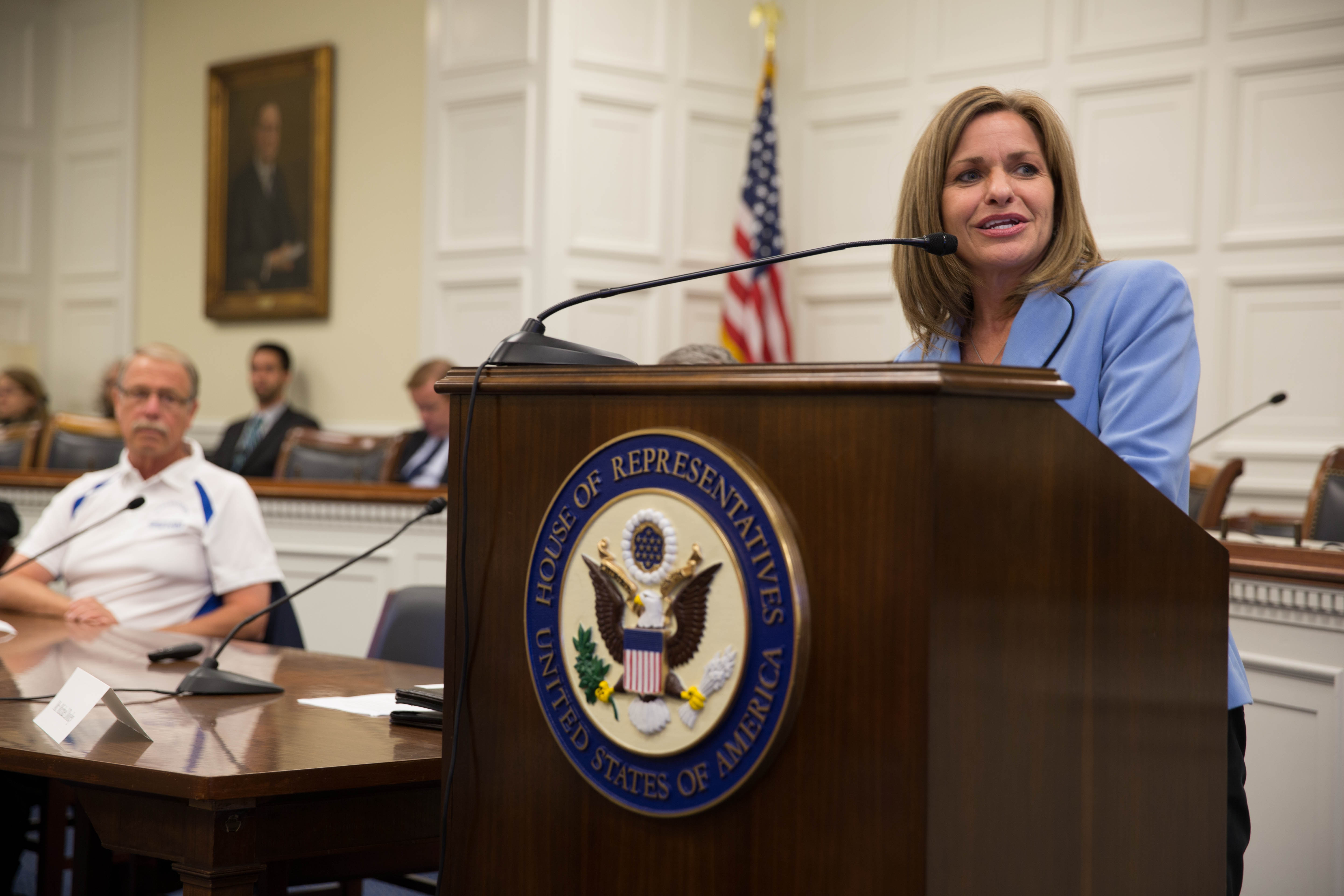Bert Nash CEO testifies in Washington on importance of mental health first-aid training

David Johnson, CEO of Bert Nash Community Mental Health Center in Lawrence, testifies as part of a congressional panel in Washington, D.C., on Wednesday to raise awareness about the benefits of mental health first aid training.
The CEO of Lawrence’s Bert Nash Community Mental Health Center testified before congressional staffers in Washington, D.C., on Wednesday about the importance of training public safety officers on how to properly deal with people with mental illnesses.
David Johnson testified about the success Bert Nash has had in providing the training to law enforcement officials in Douglas County. In 2008, Bert Nash became one of the first places in the nation to offer the first-aid program and has since trained more than 1,000 community members. The eight-hour course helps participants better understand mental illness and addiction, in the hopes they can intervene in crisis situations before they escalate.
On Wednesday, Johnson told the story of the female friend of an Iraq War veteran who was impressed with Lawrence police’s response to an episode of his post-traumatic stress disorder; when she thanked an officer, he told her, “I was trained well by Bert Nash.” Johnson also talked about how the training benefits even those who don’t work in public safety, such as the local man who recognized that a friend was suicidal and prevented him from killing himself.
“When more members of the public have been exposed to mental health first aid, law enforcement agencies are engaged earlier and are better able to address the situation, saving lives and making our communities healthier,” Johnson testified.
Lawrence’s U.S. House member, Lynn Jenkins, invited Johnson to speak on the panel, which was meant to promote a new mental health first-aid training designed specifically for public safety officers. She co-sponsored a bill last year to expand mental health first-aid training around the nation.
The bill, which has bipartisan cosponsors, would authorize $20 million in grants annually to fund mental health first-aid training for public safety officials, educators and primary care providers, among others. Congress ended up making a one-time $15 million appropriation for the training in its fiscal 2014 budget.

U.S. Rep. Lynn Jenkins, R-Kan., speaks before a congressional briefing Wednesday on mental health first aid training, as David Johnson, CEO of Lawrence's Bert Nash Community Health Center, looks on.
Jenkins, a Republican from Topeka, noted that mental health is one issue that has bipartisan support in a divided Washington. She said she hopes to continue raising awareness about the first-aid training until the bill gets enough backing to become law.
“Mental health does not discriminate against anyone,” she said. “I believe about every family in America is touched in some way by mental illness. But it’s treatable … if we can train people to identify those who are in need of these services.”
Johnson said more consistent funding would allow Bert Nash to offer the course for less than the $30 it costs now and hire additional staff to put on the training (it’s now given by Bert Nash staffers who do it on top of their regular duties).
Lt. Steve Lewis, spokesman for the Douglas County Sheriff’s Office, said the training has benefited county jail staffers, who over the years have had to deal with an increasing number of mentally ill inmates.
“It definitely works to give staff out there strategies for treating people properly and appropriately, and at the same time help them understand the situation and take care of themselves so it doesn’t weigh too heavily on them,” he said.







